 Borders has "terminated" its senior executive team. Company President Mike Edwards and CFO Scott Henry were dismissed effective July 29, according to an SEC filing. Holly Felder Etlin, managing director of AlixPartners--which has been providing financial restructuring and bankruptcy reorganization advisory services to Borders--was appointed temporary company president. Glen Tomaszewski, Borders v-p, chief accounting officer and controller, will serve as treasurer.
Borders has "terminated" its senior executive team. Company President Mike Edwards and CFO Scott Henry were dismissed effective July 29, according to an SEC filing. Holly Felder Etlin, managing director of AlixPartners--which has been providing financial restructuring and bankruptcy reorganization advisory services to Borders--was appointed temporary company president. Glen Tomaszewski, Borders v-p, chief accounting officer and controller, will serve as treasurer.
---
In this month's letter to members, ABA CEO Oren Teicher focused on the fight for e-fairness with an update on the current state of the online sales tax issue nationally. Teicher wrote that a "compelling indication of the importance" of legislative wins in Arkansas, Connecticut, and California "is the extensive resources that opponents of e-fairness employ to fight the passage of affiliate nexus legislation. That alone underscores that every time a state enacts sales tax fairness legislation, we have accomplished a great deal. Despite the short-term delay in sales tax collection in some states, each victory moves us closer to the tipping point where these online retailers will no longer be able to afford to fire their affiliates and will collect sales tax."
---
 "It's a scene straight out of the Bible --'And the wolf shall dwell with the lamb'--only in Arizona's version the wolf and lamb are taking on an 800-pound gorilla." The Republic invoked this biblical analogy to describe a recent meeting about the state's online sales tax issue that included indie businesses and some unlikely allies.
"It's a scene straight out of the Bible --'And the wolf shall dwell with the lamb'--only in Arizona's version the wolf and lamb are taking on an 800-pound gorilla." The Republic invoked this biblical analogy to describe a recent meeting about the state's online sales tax issue that included indie businesses and some unlikely allies.
"It seemed odd, at first, to be on the same side of the table with folks from Wal-Mart, Home Depot, Target and Best Buy," said Gayle Shanks of Changing Hands bookstore, Tempe. "But small businesses like ours have this thing in common with the big-box stores. We're all long-time Arizona businesses and the state is working against us by siding with an Internet giant like Amazon."
---
 BookSmart, Morgan Hill, Calif., will open a new branch at the National Steinbeck Center in Salinas this fall. Colleen Finegan Bailey, the center’s executive director, told the Monterey County Weekly that selecting an indie for the space was "both a response to the impending closure of Sand City's Borders, and a nod to the center's community-oriented vision."
BookSmart, Morgan Hill, Calif., will open a new branch at the National Steinbeck Center in Salinas this fall. Colleen Finegan Bailey, the center’s executive director, told the Monterey County Weekly that selecting an indie for the space was "both a response to the impending closure of Sand City's Borders, and a nod to the center's community-oriented vision."
"The big-box model of bookstores is going away, but the smaller, independent bookstore model is catching on," she added. "The store will offer not just Steinbeck books, but general-interest books that meet the needs of the Salinas community."
BookSmart's co-owners Brad Jones and Cinda Meister "were impressed by the Steinbeck Center and the Oldtown Salinas Association at a July 28 business mixer," the Weekly noted. "I heard, 'How can everybody in this room help you succeed?' That's something I've never heard spoken that way before," said Jones.
----
Rapid City, S.D., will be getting a new independent bookstore at 510 Main St. on a block that is in the process of being transformed "into a locally owned shopping and dining destination," the Journal reported, adding that the bookstore, "whose owner has not yet been selected from a handful of proposals, will have a spiral staircase leading to an upper mezzanine lined with bookshelves."
---
Shop local video of the day: Bookselling This Week featured Truepix.TV's clever video highlighting businesses in downtown Dickson, Tenn., including Reading Rock Books.
"I think it’s really good at showing exactly how the system works and why it's important to shop local," said Laura Hill, co-owner of the bookstore. "A lot of people don’t realize that it’s not just that one local business they’re supporting, but all of them. So this really drives that home. Any illustration of that is helpful, I think."
---
 How can booksellers turn a scan into a sale? Bookselling This Week reported that "dealing with customers who are obviously browsing the store to buy elsewhere can be tricky," but several indies are trying alternatives to steer customers "toward the cash wrap instead of the door."
How can booksellers turn a scan into a sale? Bookselling This Week reported that "dealing with customers who are obviously browsing the store to buy elsewhere can be tricky," but several indies are trying alternatives to steer customers "toward the cash wrap instead of the door."
Carole Horne of Harvard Book Store, Cambridge, Mass., mentioned the shop's "Don't Be an iPhoney" video and said, "We also have this large sign in the store and a smaller copy on the door: 'Find it here. Buy it here. Keep us here.' "
Tattered Cover Bookstore, Denver, Colo., posts fliers with scannable codes, which link to the store's website. "We have QR codes all over the stores to say, 'Hint hint, do your buying here.' but so far don’t have official signs or policies," said Cathy Langer.
---
In Sri Lanka, a shoplifter really had the book thrown at him. The Daily Mirror reported that a man who pleaded guilty to stealing four books from the Lake House Bookshop was sentenced to 26 months "rigorous imprisonment" by the Colombo Fort Magistrate.
---
Fast Company showcased its "Leadership Hall of Fame: The Best Business Autobiographies," noting that "many entrepreneurs and leaders come and go without passing on what made them great. But there have been others who decided to pick up a pen, sit at a typewriter, or dictate into a recorder.... here is a list of those remarkable businessmen and women who decided to tell their life's story and impart their wisdom, from Ash to Welch."
---
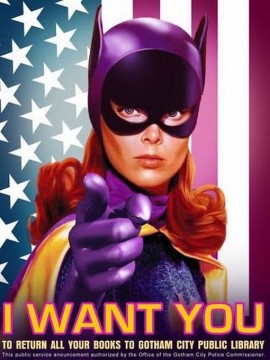 The Mary Sue website showcased 10 Action Librarians, noting that despite the traditional stereotypes for the profession, "there are plenty of kick ass librarians in fiction!... This week's Grid is dedicated to the runners up, and to the reference librarian who didn't bat an eye when I asked her where I could find books on Slavic Folklore, prison tattoos, and Marine snipers (preferably autobiographies)."
The Mary Sue website showcased 10 Action Librarians, noting that despite the traditional stereotypes for the profession, "there are plenty of kick ass librarians in fiction!... This week's Grid is dedicated to the runners up, and to the reference librarian who didn't bat an eye when I asked her where I could find books on Slavic Folklore, prison tattoos, and Marine snipers (preferably autobiographies)."
---
The first installment of a new Guardian series called "overlooked classics of American literature" reconsidered Thomas Berger's 1983 novel The Feud.
---
In her book art, Cara Barer addresses "the ephemeral and fragile nature in which we now obtain knowledge, and the future of books." Barer also reassured concerned book lovers that "no important books have been injured during the making of any of these photographs."
---
"What is the name of the merchant and moneylender who leads Emma Bovary into hopelessly deep debt?" It may be the perfect time to take the Guardian's latest quiz: debt in literature.
And USA Today invited readers to test their "knowledge of all things Catch-22" during the 50th anniversary year of Joseph Heller's novel.
---
Buzzfeed shared its discovery of the "most insane Amazon author bio ever"--Thurgood Meddlethorp.
---
Book trailer of the day: VOLT ink.: Recipes, Stories, Brothers by Top Chefs Bryan Voltaggio and Michael Voltaggio (Weldon Owen), which will be served up in October.
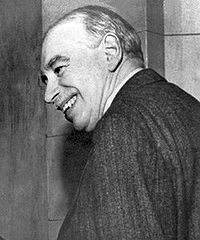 "He should live with more books than he reads, with a penumbra of unread pages, of which he knows the general character and content, fluttering round him. This is the purpose of libraries.... It is also the purpose of good bookshops, both new and secondhand, of which there are still some, and would that there were more. A bookshop is not like a railway booking-office which one approaches knowing what one wants. One should enter it vaguely, almost in a dream, and allow what is there freely to attract and influence the eye.
"He should live with more books than he reads, with a penumbra of unread pages, of which he knows the general character and content, fluttering round him. This is the purpose of libraries.... It is also the purpose of good bookshops, both new and secondhand, of which there are still some, and would that there were more. A bookshop is not like a railway booking-office which one approaches knowing what one wants. One should enter it vaguely, almost in a dream, and allow what is there freely to attract and influence the eye.






 Borders has "terminated" its senior executive team. Company President Mike Edwards and CFO Scott Henry were dismissed effective July 29, according to an
Borders has "terminated" its senior executive team. Company President Mike Edwards and CFO Scott Henry were dismissed effective July 29, according to an  "It's a scene straight out of the Bible --'And the wolf shall dwell with the lamb'--only in Arizona's version the wolf and lamb are taking on an 800-pound gorilla." The Republic invoked this biblical analogy to describe a recent meeting about the state's online sales tax issue that included
"It's a scene straight out of the Bible --'And the wolf shall dwell with the lamb'--only in Arizona's version the wolf and lamb are taking on an 800-pound gorilla." The Republic invoked this biblical analogy to describe a recent meeting about the state's online sales tax issue that included 

 The Mary Sue website showcased
The Mary Sue website showcased  Retail sales in July indicate "the retail economy is locked on two tracks: one for businesses that cater to the well-to-do, and the other for everyone else," the New York Times reported.
Retail sales in July indicate "the retail economy is locked on two tracks: one for businesses that cater to the well-to-do, and the other for everyone else," the New York Times reported.  William Sleator, the author of more than 30 books for young people, died on Tuesday in Thailand. He was 66. Born in Maryland and raised just outside of St. Louis, Mo., he was known for his thought-provoking, often disturbing science fiction novels. His first book, The Angry Moon, illustrated by his friend Blair Lent, received a 1971 Caldecott Honor, but Sleator found even greater acclaim with his novel House of Stairs (1974), named one of the 100 Best Books for Teens by the American Library Association. He went on to publish many acclaimed novels, including Interstellar Pig (1984) and Singularity (1985), and in 1993, Oddballs, a collection of autobiographical stories about growing up outside St. Louis in a family of brilliant eccentrics. Sleator explored his fascination with Thai culture, and its embrace of the beautiful and the grotesque, in The Spirit House. His final book, The Phantom Limb, will be published in October by Amulet Books, an imprint of Abrams.
William Sleator, the author of more than 30 books for young people, died on Tuesday in Thailand. He was 66. Born in Maryland and raised just outside of St. Louis, Mo., he was known for his thought-provoking, often disturbing science fiction novels. His first book, The Angry Moon, illustrated by his friend Blair Lent, received a 1971 Caldecott Honor, but Sleator found even greater acclaim with his novel House of Stairs (1974), named one of the 100 Best Books for Teens by the American Library Association. He went on to publish many acclaimed novels, including Interstellar Pig (1984) and Singularity (1985), and in 1993, Oddballs, a collection of autobiographical stories about growing up outside St. Louis in a family of brilliant eccentrics. Sleator explored his fascination with Thai culture, and its embrace of the beautiful and the grotesque, in The Spirit House. His final book, The Phantom Limb, will be published in October by Amulet Books, an imprint of Abrams.


 Variety reported that Fox 2000 "
Variety reported that Fox 2000 "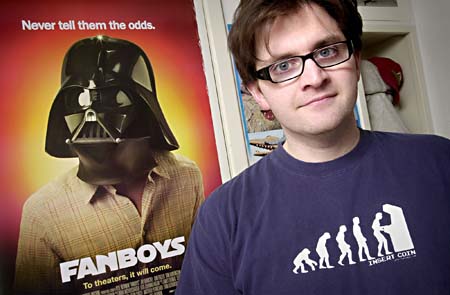
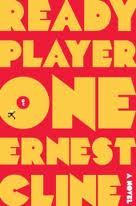 Book you've faked reading:
Book you've faked reading: 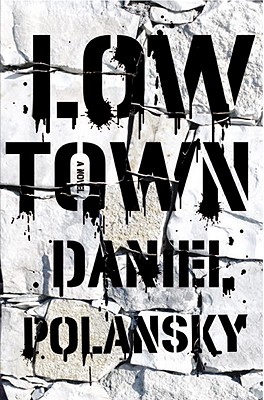 When you think of Low Town, picture the Baltimore of The Wire: a city where the criminal subculture has evolved not just into a shadow economy, but a shadow society, flourishing under the surface of official "law and order." This is the world of the Warden, a drug dealer who lives in a grubby room above a bar owned by one of his few friends. He's carved out a bit of territory for himself, and if he needs to get his hands dirty to protect it from overeager competitors, he'll do it without thinking twice. But he's not just a brutal thug, and when a young girl is kidnapped and murdered in his neighborhood, the Warden decides to hunt down the killer--he knows exactly how incompetent the city's investigators are, having been one himself before he was booted off the force in disgrace.
When you think of Low Town, picture the Baltimore of The Wire: a city where the criminal subculture has evolved not just into a shadow economy, but a shadow society, flourishing under the surface of official "law and order." This is the world of the Warden, a drug dealer who lives in a grubby room above a bar owned by one of his few friends. He's carved out a bit of territory for himself, and if he needs to get his hands dirty to protect it from overeager competitors, he'll do it without thinking twice. But he's not just a brutal thug, and when a young girl is kidnapped and murdered in his neighborhood, the Warden decides to hunt down the killer--he knows exactly how incompetent the city's investigators are, having been one himself before he was booted off the force in disgrace.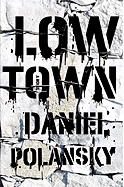
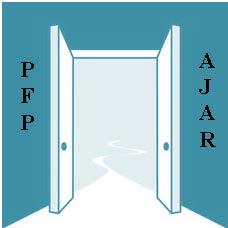 Why would anyone start a small press? For Peter Sarno, founder of
Why would anyone start a small press? For Peter Sarno, founder of 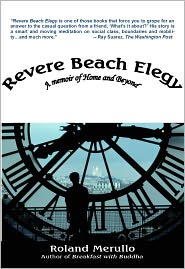 Last fall, Sarno discovered the college bookstore could no longer order the book because it was OP. He contacted Merullo to inquire about the rights. "When they reverted back to him, I talked him into allowing me to issue a print version. During this process, he asked me about the possibility of an e-book version and I prepared Kindle, NookBook and iBook versions of Elegy," Sarno said.
Last fall, Sarno discovered the college bookstore could no longer order the book because it was OP. He contacted Merullo to inquire about the rights. "When they reverted back to him, I talked him into allowing me to issue a print version. During this process, he asked me about the possibility of an e-book version and I prepared Kindle, NookBook and iBook versions of Elegy," Sarno said.